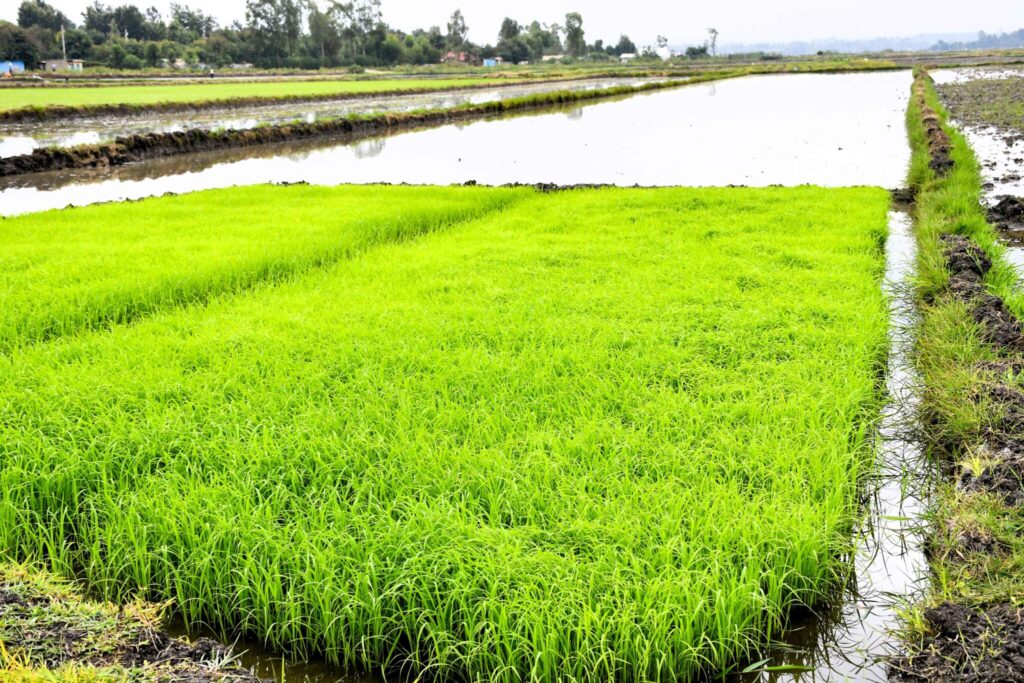Rice farmers in the Mwea Irrigation Scheme are under mounting pressure to avoid using illegal chemicals as the destructive golden apple snail continues to spread across the region. The invasive pest, first identified in 2018, has become a persistent threat to rice production, with affected areas now including Tebere, Wamumu, Karaba, Thiba, Nguka, and Ndekia.
Despite consistent efforts by authorities and farmers, controlling the pest has proven difficult. Many farmers have turned to desperate measures in a bid to salvage their crops, including resorting to unapproved and potentially hazardous pesticides smuggled into the country.
Local leadership has voiced concern over this growing trend, warning farmers of the dangers associated with these chemicals. While the urgency to save rice crops is understandable, the use of toxic substances could pose severe risks to human health, soil integrity, water safety, and the broader environment.
Farmers, however, are growing increasingly frustrated, claiming that current government interventions and approved solutions have yielded little to no success. Efforts such as hand-picking the snails and applying legal pesticides have reportedly been ineffective. The continued spread of the pest is not only lowering yields but also increasing production costs and threatening the livelihoods of many households dependent on rice farming in the area.
There is a rising call from both farmers and local leaders for the government and agricultural research institutions to prioritize finding a lasting and environmentally safe solution to the apple snail problem. A scientifically backed approach is seen as the best hope for mitigating the pest without compromising food safety or environmental health.
The apple snail is not the only challenge rice farmers in the region are contending with. Rodents and Quelea birds also remain significant threats to rice production, further complicating pest management strategies. With multiple fronts to fight on, farmers are looking for integrated pest management solutions that are effective, accessible, and sustainable.
As the battle against the apple snail continues, the focus remains on ensuring that solutions are not only effective in eliminating the pest but also safe for the people and ecosystems that depend on healthy agricultural practices.

